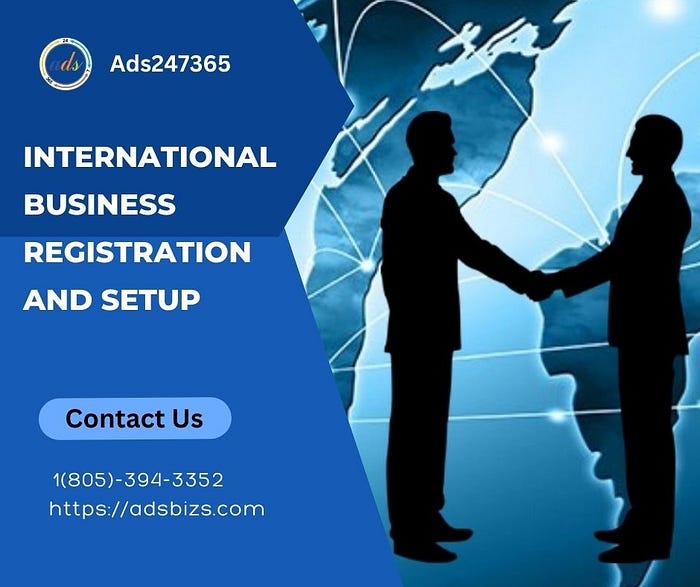Unlocking the Secrets: How to Register a Business Internationally

Embark on a journey into the realm of international business registration with our guide on How to register a business internationally. Discover the key steps and considerations that pave the way for successful global ventures.
Explore the nuances of setting up business operations beyond borders and delve into the intricacies of legal frameworks and business structures.
Researching International Business Registration

Researching different countries' business registration requirements is crucial when planning to expand internationally. This process involves identifying the most suitable countries based on factors like taxation, legal requirements, and market opportunities. Understanding cultural and language barriers is also significant to ensure a smooth registration process.
Importance of Researching Different Countries’ Business Registration Requirements
Researching different countries' business registration requirements allows businesses to comply with local laws and regulations. It helps in avoiding legal issues and potential penalties that may arise from non-compliance. By understanding the specific requirements of each country, businesses can streamline the registration process and set up operations efficiently.
- Researching taxation laws and incentives
- Understanding legal requirements for foreign businesses
- Exploring market opportunities and demand
Identifying Suitable Countries for International Business Registration
To identify the most suitable countries for international business registration, businesses should consider various factors such as taxation rates, ease of doing business, political stability, and access to markets. Conducting thorough research and seeking advice from legal and financial experts can help in making informed decisions about where to register a business internationally.
It is essential to consider the long-term implications of choosing a specific country for business registration.
Significance of Understanding Cultural and Language Barriers
Cultural and language barriers can impact the registration process and overall business operations in a foreign country. By understanding the cultural norms, business etiquette, and language requirements of the target market, businesses can establish strong relationships with local partners and customers.
This understanding also helps in navigating any communication challenges that may arise during the registration process.
- Adapting to local business practices
- Utilizing language translation services if needed
- Building trust and credibility with local stakeholders
Legal Considerations for International Business Registration
When expanding your business internationally, it is crucial to understand the legal considerations involved in registering your business in a foreign country. Each country has its own legal framework and requirements for business registration, which can vary significantly from one another.
Here, we will delve into the legal steps, frameworks, and challenges faced by businesses during the international registration process.
Legal Steps for Registering a Business in a Foreign Country
- Research and choose the country where you want to register your business.
- Understand the legal structure options available in that country, such as forming a subsidiary, branch, or joint venture.
- Consult with a local attorney or legal advisor to ensure compliance with all legal requirements.
- Prepare and file the necessary documents with the relevant government authorities.
- Obtain any required permits or licenses to operate legally in the new country.
Comparison of Legal Frameworks for Business Registration in Different Countries
| Country | Legal Framework |
|---|---|
| United States | Complex federal and state laws, with different requirements for each state. |
| United Kingdom | Simpler registration process through Companies House, with clear guidelines for different business structures. |
| China | Strict regulations and restrictions on foreign ownership, with a lengthy approval process. |
Common Legal Challenges in International Business Registration
- Language barriers and translation of legal documents.
- Cultural differences impacting business practices and legal requirements.
- Understanding and complying with local tax laws and regulations.
- Navigating complex bureaucratic processes in some countries.
- Dealing with intellectual property protection issues in foreign jurisdictions.
Choosing the Right Business Structure

When registering a business internationally, it is crucial to carefully consider the type of business structure that will best suit your needs. The choice of business structure can have significant implications on various aspects of your international business, including liability, taxation, and operational flexibility.
Different Types of Business Structures
- Sole Proprietorship: This structure involves a single individual owning and operating the business. The owner has unlimited liability and is personally responsible for all aspects of the business.
- Partnership: A partnership involves two or more individuals sharing ownership and responsibility for the business. Partners have shared liability and share profits and losses.
- Corporation: A corporation is a separate legal entity from its owners, providing limited liability protection. Shareholders own the corporation, and its profits are taxed separately.
- Branch Office: A branch office is an extension of a parent company, operating in a foreign country. The parent company retains liability for the branch's operations.
Implications of Business Structures
- Liability:Sole proprietors and partners have unlimited liability, while corporations and branch offices offer limited liability protection.
- Taxation:Tax implications vary for each business structure, with corporations often facing separate taxation from their owners.
- Operational Flexibility:Different business structures offer varying levels of operational flexibility, with corporations typically having more formal structures and processes.
Determining the Most Suitable Business Structure
Consider the nature of your international business, including factors such as the level of risk, the need for capital, and the desired level of control. Consulting with legal and financial advisors can help you assess the best business structure for your specific circumstances.
Documentation and Registration Process

Starting an international business requires specific documentation and following a structured registration process. Here's what you need to know:
Necessary Documentation
- Business Plans: Detailed Artikel of your business goals, strategies, and financial projections.
- Financial Statements: Records showing your business's financial health, including income statements, balance sheets, and cash flow statements.
- Identification Documents: Valid identification for all owners or partners involved in the business.
Registration Process
- Fill out Forms: Complete the required forms for international business registration, providing accurate information.
- Obtain Permits and Licenses: Research and acquire any necessary permits or licenses to operate legally in the country.
- Submit Documentation: Submit all required documentation along with the registration forms to the appropriate authorities.
- Pay Fees: Pay any registration fees or taxes associated with starting your international business.
Tips for Streamlining the Process
- Research Requirements: Understand the specific requirements for international business registration in your target country to prepare in advance.
- Seek Professional Help: Consider hiring a local lawyer or consultant to guide you through the registration process and ensure compliance with local laws.
- Stay Organized: Keep all documentation and paperwork organized and easily accessible to prevent delays or missing information.
- Communicate Clearly: Maintain open communication with the registration authorities to address any questions or concerns promptly.
Conclusion
As we conclude our exploration of How to register a business internationally, remember that thorough research, sound legal guidance, and strategic decision-making are the cornerstones of a successful global enterprise.
Essential Questionnaire
What are the key factors to consider when choosing a country for international business registration?
Factors to consider include taxation laws, legal requirements, market opportunities, and cultural aspects.
What are the common legal challenges businesses face during international registration?
Common legal challenges include language barriers, differing legal frameworks, and compliance issues.
How can businesses streamline the international registration process?
Businesses can streamline the process by preparing all necessary documentation in advance, seeking legal counsel, and staying informed about regulatory requirements.

